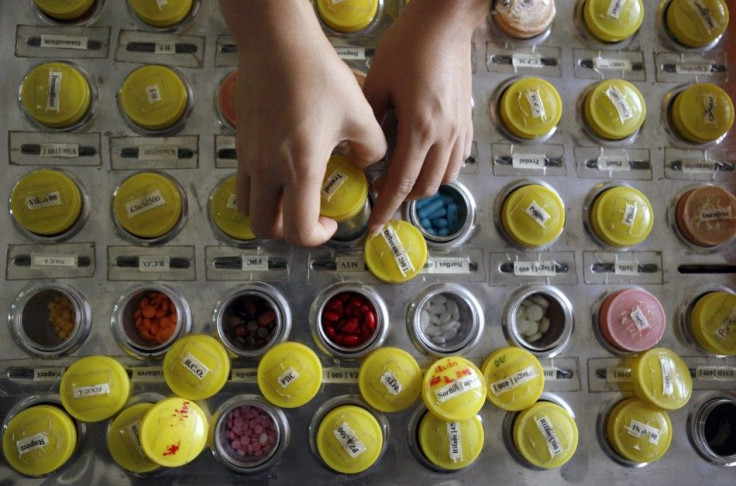Bristol-Myers Acquires Inhibitex for $2.5 Billion, Targeting Hepatitis C

Bristol-Myers Squibb Co. (BMY), the American pharmaceutical giant that is facing the near-term loss of patent protections on three of its four top sellers, is set to buy U.S. biotech company Inhibitex Inc. for $2.5 billion.
Bristol announced Saturday that the company will be paying Inhibitex shareholders $26 a share, a 163 percent premium to Inhibitex's Friday close of $9.87 a share. The all-cash deal -- valued at $2.5 billion -- is Bristol's latest move to become a bigger player in the promising hepatitis C treatment business.
Hepatitis C is an infectious disease of the liver. More than 4 million Americans and approximately 180 million people worldwide have chronic hepatitis C. Hepatitis C leads to chronic liver disease or cirrhosis, and can result in death in 1 percent to 5 percent of infected people, according to Inhibitex.
The deal will give Bristol access to Inhibitex's potential hepatitis C drug INX-189, which is currently in the second stage of testing normally needed for U.S. regulatory approval.
The acquisition of Inhibitex builds on Bristol-Myers Squibb's long history of discovering, developing and delivering innovative new medicines in virology and enriches our portfolio of investigational medicines for hepatitis C, said Lamberto Andreotti, chief executive of Bristol-Myers.
There is significant unmet medical need in hepatitis C. This acquisition represents an important investment in the long-term growth of the company, Andreotti added.
Bristol expects the transaction to dilute earnings through 2016 and projects costs from the merger of 4 cents per share in 2012 and 5 cents a share in 2013.
In the pharmaceutical industry, holding patents is key to driving up sales and profits. Bristol is set to lose patent protection on $6.7 billion-a-year anti-clot drug Plavix this November and the $1.2 billion-a-year high blood pressure medication Avapro this September. The No.2 top-seller antipsychotic Abilify, with $2.6 billion in revenue in 2010, will face generic competition in 2015. Altogether, these drugs represent 54 percent of Bristol's $19.5 billion 2010 sales.
The only billion-dollar top-seller that will not be available for mass production as a generic drug soon, as generally happens once the patent expires on a pharmaceutical expires, is anti-HIV drug Reyataz. That treatment accounts for approximately 8 percent of Bristol's 2010 total sales.
Acquiring a smaller biotech company with a promising drug in the pipeline is one of pharmaceutical companies' common strategies to beef up their portfolio of drug prospects as patent expirations loom. In November, Pharmasset Inc., another developer of hepatitis C drugs, was acquired by Gilead Sciences Inc. for $10.8 billion.
And those two acquisitions might not be the end of it, as four other top-selling pharmaceuticals have patent protections that expire this year: AstraZeneca Plc (AZN)'s antipsychotic medication Seroquel, Merck & Co. Inc.'s (MRK) oral asthma and allergy treatment Singulair, Takeda Pharmaceutical Company Ltd (TKPYY.PK)'s type 2 diabetes medication Actos, and Amgen Inc. (AMGN)'s arthritis and psoriasis treatment Enbrel.
Shares of other hepatitis C drug developers rallied on the Inhibitex deal. Seen as potential take-over targets, Achillion Pharmaceuticals Inc. (ACHN) and Idenix Pharmaceuticals Inc. (IDIX) were both trading at their new 52-week highs, up as much as 18.7 percent and 47.4 percent, respectively in Monday morning.
Bristol is currently trading at $34.01 a share, down 0.64 percent or 22 cents.
© Copyright IBTimes 2025. All rights reserved.






















